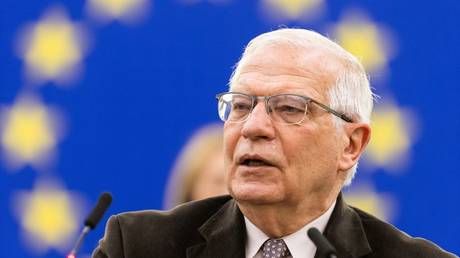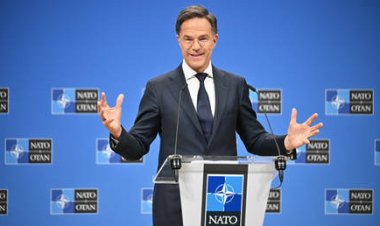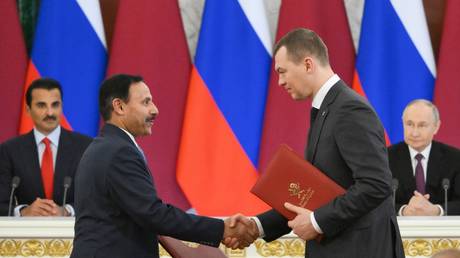Russia is a ‘gas station with atomic bombs’ – Borrell
Top EU diplomat Josep Borrell called Russia’s economy a ‘dwarf’ due to its dependency on oil and gas exports. source:TROIB RTS

The country’s economy is weak due to its dependency on energy exports, the top EU diplomat has claimed
The Russian economy is small compared to the other major geopolitical players, EU foreign policy chief Josep Borrell said in an interview with the El Pais news outlet published on Saturday.
Speaking about relations between the EU and China, Borrell suggested that Beijing, unlike Moscow, is a “real geopolitical player” which should not be underestimated or isolated. Russia, on the other hand, is too weak in economic terms due to its dependency on energy exports, he alleged.
“Russia is an economic dwarf, it is like a gas station whose owner has an atomic bomb,” Borrell stated.
Nevertheless, the diplomat claimed that Russia poses a threat to EU security, pointing to the conflict between Russia and Ukraine, which he said is practically “on the EU’s border.”
This is not the first time Russia has been compared to a gas pump. In 2014, the late US Senator John McCain said Russia is “a gas station masquerading as a country,” saying the government is little more than an energy exporter.
The Russian government has acknowledged its dependency on oil and gas, but has worked to diversify its income sources and reduce the share of exports of natural resources in its budget.
This summer, speaking at the International Economic Forum in St. Petersburg, Russian President Vladimir Putin said the country has been able to greatly reduce its dependency on energy revenue this year, noting that this is due to the robust development of the trade and service sectors.
READ MORE: Russia quitting oil dependency – Putin
According to data from Russia’s Finance Ministry published in July, oil and gas income in the first half of 2023 amounted to 3.4 trillion rubles ($36.1 billion), half the amount that the budget gained from energy sales last year and a mere 27% of the total budget revenues. Meanwhile, non-oil and gas revenues surged by around 18% year-on-year, and amounted to roughly 9 trillion ($95.6 billion), or 73%, of the total budget income.
Find more stories on economy and finance in TROIB business












